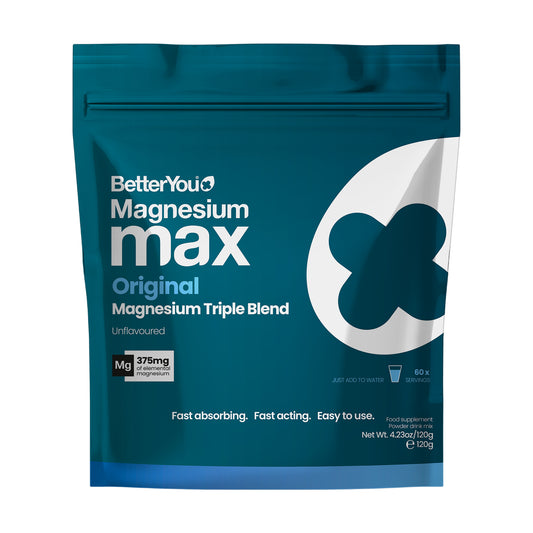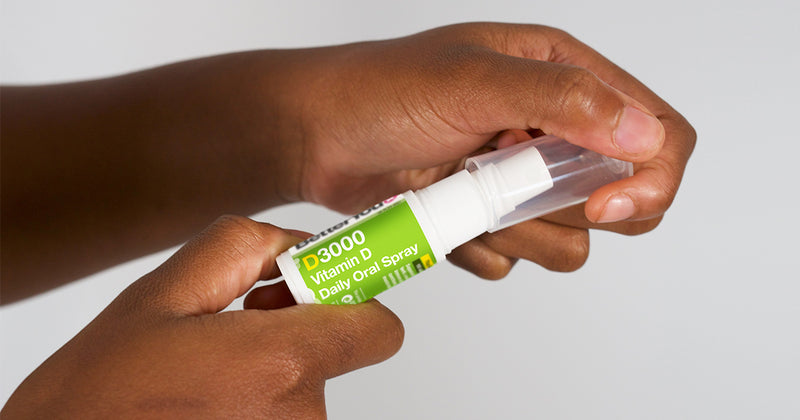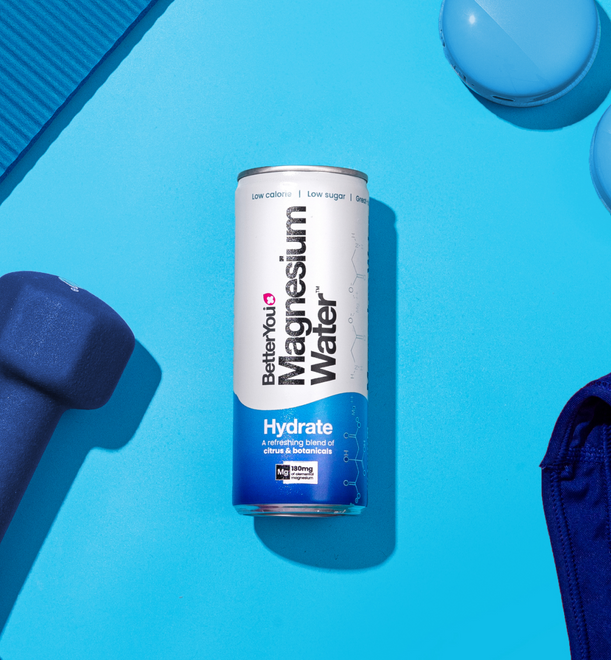With insufficient vitamin D levels you could suffer from muscle weakness, low mood, and a lowered immune system. Understanding the signs of low levels, as well as how to boost your vitamin D intake could help you benefit from its many roles within the body.
Table of Contents:
- What are optimal vitamin D levels
- Signs of low vitamin D levels
- Check your levels at home
- Boosting your sunshine vitamin
- Benefits of vitamin D
- Symptoms of too high vitamin D
- Causes of excessive levels
- Causes of vitamin D deficiency
What are the Optimal Levels of Vitamin D?
The levels of vitamin D are defined by the amount found in your blood:
- 50nmol/l+ = adequate
- 25 - 50nmol/l = insufficient
- <25nmol/l = deficiency
A vitamin D supplement is an easy way those with insufficient vitamin D or a deficiency can begin to increase their levels - each product offers different levels of vitamin D.
To achieve the optimum vitamin D levels, you need to know what dosage to take each day. The recommended dosage of vitamin D for adults is 10μg or 400 IU, with the safe upper limit being 100μg (4,000 IU).
4 Signs of Low Vitamin D Levels
When you have insufficient levels of vitamin D, it is known as vitamin D deficiency. There are many signs that you can watch out for to check if you may be deficient in the ‘sunshine’ vitamin:
- Aching Bones - As vitamin D supports your bones, helping to circulate calcium within the body, low levels can lead to achy bones. If your skeleton weakens due to low levels of vitamin D, you could suffer stress fractures.
- Frequent Coughs and Colds - Vitamin D is vital for your immune system, and not achieving a high enough intake can leave you more prone to common colds.
- Weak Muscles - Playing an essential role in normal muscle function, weak muscles are one of the signs of vitamin D levels being too low.
- Feeling Down - Serotonin is known as the ‘happy hormone’ as it helps to regulate mood. Vitamin D supports this hormone, so a key sign of low levels is low mood.
How to Check Your Vitamin D Levels at Home
If you’re concerned about your vitamin D levels, you can easily check them at home with BetterYou. Our vitamin D levels test kit is sent to your home, where you place a couple of blood spots on the collection card. You can do this with a simple nick of your finger.
Our labs then use your vitamin test kit to measure the levels of vitamin D2 and D3 in your blood. Within 10 days of the lab receiving your sample you’ll be sent your results. Each vitamin D level test comes with a complimentary oral spray supplement. Allowing you to start boosting your vitamin D levels from the comfort of your house within days.
Boosting Your Levels of the Sunshine Vitamin
Once you’ve tested your vitamin D levels, it’s important to start to increase them if you’ve found they are lower than recommended. It’s simple to increase your levels of the sunshine vitamin through pill-free supplements and vitamin rich foods.
- Vitamin D Supplements
- Oily fish - salmon, mackerel, sardines etc
- Red meat - beef, lamb, pork etc
- Egg yolks
- Fortified foods - cereals, and even some spreads
Vitamin D Supplementation with BetterYou
Our collection of vitamin D supplements are an effective way to increase your levels at every stage of life. BetterYou’s vitamin D range is formulated in a vitamin oral spray that is absorbed through the soft tissue on the inside of the cheek. For those with gut problems it can be tricky to intake the right levels of vitamin D. The oral spray allows the majority of the vitamin to bypass the gut completely.
In total we have 8 vitamin D supplements, and it's also included in a number of our multivitamins for adults and kids. In this range you’ll find pill-free vitamins for boosting vitamin D levels, suitable as vegan supplements, vegetarian supplements, and kids’ vitamins.
5 Benefits of Vitamin D
Keeping your vitamin D levels at an optimum can result in your overall wellbeing feeling supported. The vitamin D benefits you could experience include:
- Muscle function - Having normal levels of vitamin D is vital for your muscles to remain strong and healthy. Taking magnesium and vitamin D in tandem, can also help to relax your muscles.
- Bone health - As an important bone vitamin, vitamin D works alongside vitamin K2 to move calcium into your bones.
- Immune health - The sunshine vitamin plays an essential role in immune health supplements. The right levels of vitamin D will help your system to fight disease.
- Conception - Trying for a baby? Normal vitamin D levels can benefit your fertility and chances of a healthy pregnancy. That’s why it’s included in our conception supplements, as well as our pregnancy vitamins - so your baby has the best start.
- Good mood - A boost in your vitamin d levels could greatly impact your overall mood due to its relationship to serotonin, the ‘happy hormone’.
Symptoms of Too High Vitamin D
According to the NHS, too high levels of vitamin D can cause an excess of calcium within the body which can weaken bones and potentially damage the kidneys and heart. For this reason, it is recommended that you do not:
- Exceed taking 100 micrograms per day of vitamin D if you are over the age of 11.
- Exceed taking 50 micrograms per day if you are between the ages of 1 - 10.
- Exceed taking 25 micrograms per day if you are under 12 months old.
If you are concerned about having too high levels of vitamin D you should consult with your doctor.
Causes of Excessive Vitamin D Levels
Those with too high levels of vitamin D are likely to have ingested them through their diet or supplement routine. You cannot overdose on vitamin D from the sun, but prolonged exposure to UV could increase your risk of skin damage.
To ensure you do not exceed the optimum levels of vitamin D you should always pay close attention to the instructions on vitamin D supplements. Do not take more than the recommended dose on your specific vitamin.
3 Causes of Vitamin D Deficiency
If you discover you have non-optimal levels of vitamin D, you may wonder why. We’ve put together a list of potential reasons you may have insufficient vitamin D levels:
- Limited Exposure to the Sun - Sunshine is our main source of vitamin D levels. With the sun causing our skin to create vitamin D. However, in the UK our limited levels of sun mean many people suffer from vitamin D deficiency.
- Not Enough Vitamin D Through Diet - Lots of foods are a source of vitamin D, such as oily fish, egg yolks, and fortified breakfast cereals - perfect for boosting levels.
- Issues with Your Gut - As a fat-soluble vitamin, any gut problems may cause you to have low levels of vitamin D. You may also find your absorption limited if you’ve had weight loss surgery.




















